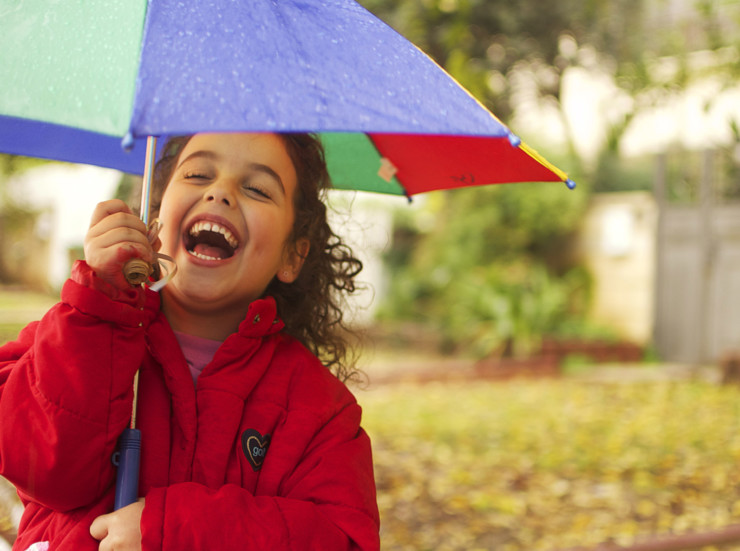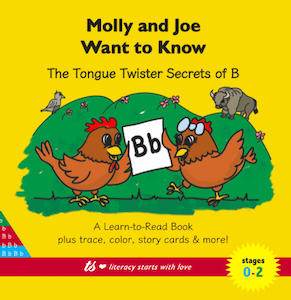In 1999, when my sons were in kindergarten and first grade, their principal dared his students to read one thousand books. Maybe it was ten thousand. I don’t remember anymore, but it was an astronomical number. In return, if they succeeded, he vowed to jump out of an airplane.
They took the dare, read more than a thousand books, and one sunny day in May the principal did something he’d never done before. He jumped, tandem, smack dab into the middle of the school grounds of Woodland Elementary School, Johnson City, Tennessee. Our oldest son, now 24, still remembers the big event.
I don’t recall any talk of what the children would owe him if they didn’t hit the mark, but really — with that kind of dare, was there ever any doubt? I can’t remember how many books my boys read, but it was a joyful year of reading at our house.
You don’t have to strap on a parachute and head for the airport, but here are 10 other things you can do to help a child learn to read.
1. Sing
Sing, recite, and act out nursery rhymes. Be like Elf and just make it up as you go! Word play and rhyme help children feel the rhythm of language, anticipate what’s next, and not take language (or themselves) too seriously. Importantly, music seems to be able to drive an improvement in reading skills in typical readers. While you’re at it, put the words on pages and make a song book. Some kids love to follow the words as they sing along.
2. Dance
Did you know that children who can keep a beat often demonstrate higher levels of reading fluency? But wait —there’s more! Rhythm mastery can even predict reading abilities in developmental dyslexia. So, clear a space, turn on some music, and get moving!
3. Build Stuff
Provide (and create) building blocks and constructive play materials for children. Extend their play by adding props such as small people and animal figures, vehicles, and street signs—and let the stories unfold.
4. Let’s Pretend
Research shows us that pretend play fosters many of the necessary skills and behaviors that enhance reading experiences: getting ‘lost’ in a fantasy; turn taking; practicing different roles; creating and acting out stories with beginnings, middles, and ends; expressing thoughts and ideas; and interacting with others. These are just a few of the gains. It’s easy to see how these things come in handy when we, ourselves, get lost in a good book!
5. Explore
Leave the books and tablets at home and visit museums, galleries, libraries, farm markets, aquariums, water falls, fishing stores, hatcheries, farms, firehouses, post offices, gardens, train yards, airports, and any other place that you can go with a child. Be curious. Ask questions. Talk to people you find at these places. Children benefit from hearing a wide variety of voices, encountering different personalities, and sensing various moods, energies and enthusiasm.
6. Read
Now, I’m not talking about reading to your child. It’s no surprise that reading to children is important for their own reading lives, but did you know that parents’ reading habits play a role in the way children perceive reading? Make time for your own reading life. Find material that you enjoy or that satisfies a particular curiosity. Read what you like, from books, magazines, cookbooks and e-readers, and let your child catch you reading.
7. Forget the Words
Go on an image hunt and capture images on camera that seem to go together (even better if your child is able to take their own photos). For example, snap a favorite toy at the breakfast table, in the bathtub, on the swing outside. Use the photos to tell stories, recall events, predict what’s next. You can even print and glue them into a blank book, or upload them to one of the many websites which can transform them into books! Wordless books help children invent stories, express their stories orally, work with sequence, all while giving practice with turning pages right to left. If they go left to right, you have a perfect opportunity to mention other cultures that do the same.
8. Take a Listening Expedition
Go for a walk and listen to everything. Record the sounds on a recorder or cell phone and then listen when you get home. Can you recall what made the sound? Where were you? What did it make you feel? Have you ever heard that sound before? Not only are sounds important to reading, but so is the ability to listen to others and pay attention to surroundings.
9. Give Books
Yes, children who are not yet readers can appreciate owning, and even tasting, their own books! Having books in the home leads to improved reading performance, and influences the length of time spent reading as well as overall mindsets about reading.
10. Read a Poem a Day
Read a poem a day to your child. Why? Because, people who read poetry, in school or at home, are better readers, and better writers. Incidentally, if you want to read a poem a day Every Day Poems can help with that.
This is not to imply that children don’t need to learn the mechanics of reading, the letters, phonics, and rules of grammar — but that wouldn’t have been much of a surprise. And isn’t it inspiring to think that all this play is a big part of learning to read? L.L. Barkat reminds us just how valuable this play business is in her recap of Dr. Stuart Brown’s book Play: How it Shapes the Brain, Opens the Imagination, and Invigorates the Soul. She reports, in the words of the author, the verdict is in, and it looks good for those who spent their childhoods (and still spend a portion of their adulthoods) in play.
For further reading:
Rhythm perception and production predict reading abilities in developmental dyslexia
The Alchemy of Song
Singing as a Teaching Tool. Early Years are Learning Years
Why Wordless Books?
4 reasons why your child needs building toys for language and creative development
Building Minds. Block Play as Writing, Thinking, and Math Tool
DIY jumbo building blocks. The Stay at home mom’s survival guide
The importance of pretend play in child development
How parents shape the reading habits of their children
Drunk on Words: Why you should read poetry daily
Five reasons why we need poetry in school
English Teaching Resources: Incidentally, That Lego Could Earn You Six Figures
Photo by Alon, Creative Commons via Flickr. Post by Donna Falcone.
- From Artist’s Way to Museum Art Camp - November 14, 2018
- 10 Surprising Ways to Help a Child Learn to Read - April 26, 2017
- Emotional Literacy in the Preschool Classroom - March 2, 2017


Lane Arnold says
Great article! Now that my children are grown, I savor doing much of this with the grandchildren.
Donna Falcone says
Thank you, Lane! And have fun! AND… Happy Anniversary!
Jody Collins says
Ohhhhhhhhh, I used many of those tips and tricks over the years. Here’s to great teachers–well done, Donna.
Donna Falcone says
Oh what fun, Jody! Three cheers for great teachers, indeed! Thanks for your comment. 🙂
Bethany R. says
Such an array of ways to enhance reading education, Donna! I just love it. The Listening Expedition is a clever idea, what a fun way to open up the door for a child to express and connect what they experienced to language. Delightful list~
Donna Falcone says
Thanks, Bethany! And now, with the ease of cell phones, recording and playback is a cinch. Great fun (and auditory discrimination) going on with every click and giggle.
Sandra Heska King says
This is so good, Donna. So many great ideas, not just for helping kids learn to love words but for writers, too. And I’m thinking all that action–dancing, building exploring–could be building all kinds of brain pathways to better focus and retention. It’s good to think past the reading logs that the kids bring home from school. This all makes reading sound playful and fun.
Donna Falcone says
I like that… think past the logs! 🙂 Definitely.
Children learn with their whole bodies, storing information in ways that seem unrelated to “reading,” but everything touches everything else when it comes to learning. 🙂 So many pathways! 🙂
Michelle Ortega says
Donna, a wonderful compilation of ideas and resources (as usual)! A new one to me is taking a walk outside and recording the sounds for identification~brilliant! Sharing this over on my Communicare page now.
Donna Falcone says
Thanks for passing it along, Michelle! I think the cell phones have such an interesting application, right?! Fun and useful for so many things that used to be cumbersome and tedious. 🙂
Callie Feyen says
Donna, this is absolutely delightful. I will be using ALL of these suggestions as I finish out the school year with my K-2nd graders. Thank you!
PS – I just love your writing.
Donna says
I’m doing the happy dance! Thanks! Have fun 🙂
Sharon A Gibbs says
Donna, what a fun teacher!
Thanks for the great ideas and wealth of resources. The Listening Expedition was my favorite.
I am thinking we’re never too old to try these suggestions–for the sake of our fun and writing.
Donna Falcone says
Hi Sharon! I’m glad you found something useful here. I am a big fan of FUN! 😀